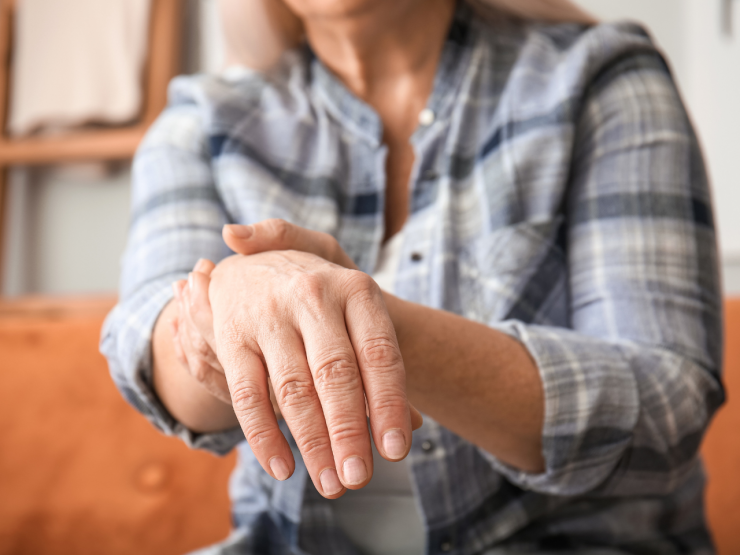Parkinson's Disease
Introduction:
Parkinson's Disease is a neurodegenerative disorder that impacts millions of individuals around the globe. Characterised by the progressive decline of certain brain cells, it leads to a range of motor and non-motor symptoms that can significantly impact daily life. In this month’s blog, we'll explore what Parkinson's Disease is, the symptoms to look out for, its risk factors, current available treatments, and the crucial support systems available for individuals and their families fighting this condition.
What is Parkinson’s Disease?
Parkinson's Disease is a chronic and progressive neurological disorder that primarily affects movement. This is a result of the slow deterioration of dopamine-producing neurons in the brain, particularly in a region called the substantia nigra. Dopamine is a neurotransmitter responsible for transmitting signals that control movement and coordination. Parkinson's symptoms start to appear as dopamine levels drop.
Symptoms:
Do you know the symptoms?
Parkinson's Disease symptoms may differ from person to person and usually develop gradually over time. Common motor symptoms include:
· Tremors (usually starting in the hands or fingers)
· Stiffness or rigidity of muscles
· Bradykinesia (slowed movements)
· Impaired balance and coordination.
Non-motor symptoms can include:
· Cognitive changes
· Mood disorders such as depression and anxiety
· Sleep disturbances
· Autonomic dysfunction affecting functions such as blood pressure regulation and digestion.
Who is at risk of developing Parkinson’s?
While anyone might be at risk of developing Parkinson's Disease, particular factors can increase the risk of developing the condition. Age is one key risk factor, with those over 60 accounting for the majority of cases. However, younger individuals can be affected, albeit less frequently. Genetics also play a part, as having a close relative with Parkinson's raises the risk.
The development of the condition may also be influenced by environmental factors, such as head injuries and exposure to certain toxins.
Treatment & Medication:
Although there is currently no cure for Parkinson's Disease, there are several treatment options available to help manage symptoms and enhance quality of life. Medications intended to replenish dopamine levels or mimic its effects on the brain are often prescribed. Physical therapy, occupational therapy, and speech therapy can aid in maintaining an individual’s mobility, and ability to undertake daily tasks and help with their speech and swallowing difficulties. In advanced cases, surgical interventions such as deep brain stimulation could be considered to relieve symptoms.
Support:
Parkinson’s disease can be challenging to live with, not only for the individuals diagnosed but also for their families and carers. Thankfully support groups, both physical and online, present beneficial opportunities for sharing experiences, developing knowledge, and accessing emotional support. Furthermore, organisations dedicated to Parkinson's research and advocacy provide resources and guidance to those affected by the disease. Seeking support from healthcare professionals, including neurologists, psychologists, and social workers, will also be beneficial in navigating the physical, emotional, and practical aspects of Parkinson's care.
Conclusion:
Parkinson's Disease is a complicated illness that needs to be managed thoroughly, with the help of medical intervention, therapy, and support systems. By understanding the disease process, recognising its symptoms, and accessing appropriate care and support, those affected by Parkinson's can competently manage their condition and maintain a fulfilling life.
Sources*
Parkinson's Foundation. (https://www.parkinson.org/)
National Institute of Neurological Disorders and Stroke. (https://www.ninds.nih.gov/Disorders/All-Disorders/Parkinsons-Disease-Information-Page)
Mayo Clinic. (https://www.mayoclinic.org/diseases-conditions/parkinsons-disease/symptoms-causes/syc-20376055)



